This article was co-authored by Chris M. Matsko, MD. Dr. Chris M. Matsko is a retired physician based in Pittsburgh, Pennsylvania. With over 25 years of medical research experience, Dr. Matsko was awarded the Pittsburgh Cornell University Leadership Award for Excellence. He holds a BS in Nutritional Science from Cornell University and an MD from the Temple University School of Medicine in 2007. Dr. Matsko earned a Research Writing Certification from the American Medical Writers Association (AMWA) in 2016 and a Medical Writing & Editing Certification from the University of Chicago in 2017.
There are 19 references cited in this article, which can be found at the bottom of the page.
wikiHow marks an article as reader-approved once it receives enough positive feedback. In this case, 97% of readers who voted found the article helpful, earning it our reader-approved status.
This article has been viewed 102,821 times.
While no one has yet discovered the fountain of youth, people are living longer than ever before. Many are even doing it in good health. The best way to have the longest life you can and the highest quality of life possible, is to take care of yourself both physically and psychologically. Protect your wellbeing so that your body and mind will be healthy enough to last for and sustain you for a long life.
Steps
Extending your Life with Healthy Living
-
1Exercise to make your body strong enough to live for 100 years. Doing a small amount of exercise will keep your body strong and fit as you age. Develop an exercise routine while you are young and then maintain it over the decades to come. This will make you healthier now by managing your weight, building muscle, and reducing stress. It will also benefit your future health by strengthening your bones, improving your balance, and boosting your immune system.
- An ideal exercise program includes 15–30 minutes of aerobic exercise five times per week and strength training twice per week.
- You can do both without having to purchase expensive gym memberships. Many people enjoy jogging, walking, or biking.
- Strength training is particularly important for postmenopausal women, who become more vulnerable to osteoporosis. Doing weight training will not only make you stronger, but it will also build bone density. This will make you less likely to break a bone if you fall as you get older. You can purchase weights at your local athletics shop.[1]
-
2Get an annual check-up. Don’t skip the annual check-ups just because you feel healthy. The best time to catch health problems is right at the beginning. Then they can be quickly and easily dealt with.[2] [3]
- Be aware of your family history. If you have a genetic predisposition to some diseases, get screened regularly. In addition, you can ask your doctor if there are any preventative measures you should do to minimize your chances of developing the disease.
- These days, having a well-managed chronic health problem is not likely to prevent you from living to be at least 100.
Advertisement -
3Don’t gamble with your life by using illegal drugs. Illegal drugs can cause sudden and severe health conditions. Because they are unregulated, there is no quality control for illegal drugs. This means that dosages are inconsistent and they may contain other substances that are dangerous for your health. Overdoses are frequently fatal, but even less than fatal effects can cause severe health risks such as:[4]
- Coma
- Brain damage
- Seizures
- Psychosis
- Confusion
- Memory loss
-
4Go easy on alcohol consumption. The Mayo Clinic recommends no more than one drink per day for women and one to two drinks per day for men. Binge drinking is extremely unhealthy.[5]
- High levels of alcohol intake raise your risk for cancers of the digestive tract, heart problems, pancreatitis, strokes, high blood pressure and liver disease.[6]
- If you enjoy a glass of wine or a beer in the evenings, ask your doctor about whether it could interact with any medications you may be taking. Even over-the-counter medications or herbal remedies and supplements may interact with alcohol.
- If you do drink, do not drive. Alcohol consumption impairs your ability to drive safely and puts your life at risk and the lives of others who are on the road. Plan ahead and either take a taxi or appoint a friend as a designated driver who will stay sober.
-
5Don’t smoke, and if you do, quit. Even people who smoked for decades can increase their lifespan and quality of life by quitting. Quitting will improve your health and reduce your risks of:
- Heart attacks
- Strokes
- Lung diseases, including cancer
- Cancer of the esophagus, larynx, throat, mouth, bladder, pancreas, kidney, and cervix
- Respiratory infections
- Diabetes
- Eye disorders like cataracts
- Gum disease
-
6Wear appropriate safety gear. Safety gear can prevent fatal injuries during accidents. This includes common activities like riding in a car or sports activities.
- Always wear your seatbelt when driving or riding in a car. If you are driving, do not speed, especially during bad weather conditions such as ice, rain, snow, or fog. Car accidents are a frequent cause of death.[7]
- Research what safety gear is necessary for risky or full contact sports. You may need protective padding and helmets when skiing, snowboarding, riding a horse, or playing football. If you are doing sports like skydiving, rock climbing, or bungee jumping make sure that all the gear you are using is in perfect working order.
-
7Limit your exposure to toxic substances. In high doses, some substances can put you at risk for developing severe health problems which could lead to an early death. For example:
- Asbestos can cause lung disease.[8]
- Pesticides in high doses are not healthy. Though both organic and non-organic farmers’ produce is monitored and regulated to ensure that pesticide residues do not exceed the legal limits, some people prefer organic produce.[9]
- Pollution and chemical fumes are damaging when you are exposed over a long period of time. If you live in a high pollution area, such as near a highway, you may want to avoid being outside during times when pollution is highest. Many communities provide pollution alerts when the air quality has reached an unsafe level.
-
8Avoid exhaustion by getting enough sleep. Sleep deprivation adds physical stress on your body and lowers your immune system. It also makes you more vulnerable to stress.[10]
- Most people need at least eight hours of sleep each night. If you have trouble staying awake during the day, you are probably not getting enough sleep.
- If you have insomnia, talk to your doctor about ways to treat it. This may include implementing lifestyle changes like always going to sleep at the same time, keeping the room dark and free of distracting noises, and using relaxation techniques before bed.
Nourish Your Body to Last 100 Years
-
1Stay young and vibrant by enjoying a diet with diverse fruits and vegetables. Fruits and vegetables are great sources of the vitamins and minerals that your body needs. Vitamins and minerals are important when you are young for growing a strong and healthy body, but they are also important when you are older for staying healthy.
- Eat at least four servings of fruits and five servings of vegetables per day. Fruits include berries, apples, pears, plums, bananas, pumpkin, squash, beans, olives, peppers, corn, peas, cucumber and tomatoes. Vegetables include beets, carrots, spinach, cauliflower, lettuce, broccoli, celery, and others. Fresh fruits and vegetables are the healthiest, but in the winter months, when they are not available, purchasing frozen fruits and vegetables is a good solution. Avoid fried and breaded fruits and vegetables because they also contain a lot of fat.
- A healthy diet rich in fresh produce lowers your risk of cancers, heart disease, high blood pressure, strokes, and diabetes.
-
2Stay resilient by eating sufficient protein. Protein is necessary for your body to repair and rebuilt cells after sustaining damage. Cell turnover is a natural part of life and maintaining a healthy body.[11]
- People who eat meat often get much of their protein from meat and animal products such as beef, pork, poultry, and eggs.
- Vegetarians (people who do not eat meat) and vegans (people who do not eat animal products) get protein from soy, beans, legumes, and nuts. Vegetarians may also supplement this with milk and cheeses.
- The average adult requires two to three servings of protein per day. Talk to your child’s doctor to determine what your child may need. Children’s requirements change as they age and grow.
-
3Maintain youthful energy levels by eating healthy carbohydrates. Sugars, starches, and fiber are all types of carbohydrates. When they are digested, your body obtains energy. Simple sugars are digested more quickly than complex carbohydrates. Because it takes complex carbohydrates longer to break down, your body will be getting that energy at a steady pace instead of all at once. This means it will provide you with energy for longer and it will also keep your blood sugar stable.[12]
- Supply your body with complex carbohydrates by eating beans, parsnips, corn, peas, lentils, peanuts, and whole-grain breads. Many breads will say on the packaging if they are whole-grain.
- Substitute complex carbohydrates for simple sugars like cakes, candy, cookies, and processed sweets. In order to have enough energy to maintain an active lifestyle, you should be getting about half of your calories from complex carbohydrates.
-
4Stay hydrated by drinking sufficient water. Drinking enough water will dilute and help you pass toxins and keep your kidneys and urinary tract healthy.[13]
- While drinking eight glasses of water a day is a good start, there is new science suggesting you may need more fluids than that. Taking into account the water contained in drinks like milk and tea and in foods like watermelon, your daily intake of fluids can be determined by dividing your weight in half. The resulting number is the number of ounces of fluids you need each day. So if you weigh 180lbs., you need 90oz of fluids each day.[14] If you are an athlete, you should be drinking about two-thirds of your body weight in ounces.
- How much you need to drink to stay well hydrated will depend on how physically active you are, how warm and dry the weather is, and your body size. You may need four or more liters of water per day.
- If you are urinating less than usual or have dark or cloudy urine, this is a symptom of dehydration.
- Carry a reusable water bottle with you during the day to help remind you to stay hydrated.
-
5Eat fats sparingly. A small amount of fat is necessary so you can absorb fat soluble vitamins, control inflammation, clot blood, and maintain proper brain function, but many people eat too much. A diet that is high in fat increases your chances of obesity, high cholesterol, heart disease, and strokes.[15]
- Foods that have a high fat content include butter, cheese, whole milk, cream, meats, and vegetable oils. You can reduce your fat intake by trimming fat off of meats, eating lean meat like poultry and fish, drinking low-fat milk, and eating low-fat yogurt.[16]
- Choose healthier fats by cooking with monounsaturated fats, polyunsaturated fats, and fats that are high in omega-3 and omega-6 fatty acids. Healthy sources of fat include olive oil, safflower oil, peanut oil, corn oil, flaxseed oil, canola oil, and soybean oil.[17]
-
6Protect your heart with a low-sodium diet. Too much sodium may lead to high blood pressure which raises your risks for heart disease and stroke. While some salt is necessary to maintain proper nerve and muscle functions, most people acquire plenty of salt naturally through their diet without adding it to their food.[18]
- Adults should consume no more than about a teaspoon of salt per day. If you have a health condition, you may need to eat much less.
- Avoid fast food. Not only is it high in fat, but it is also usually very high in salt.
Having a Low-Stress 100 Years
-
1Enjoy your 100 or more years of life. Stay mentally young and fit with hobbies you enjoy. No matter how old you are, you can still engage in hobbies you look forward to doing. Activities where you learn and grow mentally will help keep you psychologically young and mentally active.
- If money is a concern, you can consider many activities that are low-cost and available year-round. Many people enjoy doing handiwork, reading, listening to music, art or photography.[19]
- Find people with similar interests and do your hobbies together. This will help you maintain a social network and enable you to share your enjoyment. Possibilities include joining a sports club, volunteering, or joining clubs for traveling.
-
2Keep in touch with those you love. Maintaining your social network of friends and family will protect your psychological health. Friends and family will help buffer you against loneliness, depression, stress, and anxiety, all of which frequently occur as people age.[20]
- If you have difficulty getting out or your loved ones are far away, consider keeping in touch by phone, through writing letters, writing emails, video chat, or using social media.
- If you feel isolated, consider locating a support group or counselor to help you. Your doctor will likely be able to recommend support groups in your area. You can also call the health department or your local senior center to determine what resources may be available to you.
-
3Relax. Stress causes physiological changes in your body which lower your immune system and makes you more vulnerable to infections. By learning to manage stress you can improve your overall health. There are many relaxation techniques and you can try several until you find what works best for you:[21] [22]
- Meditation
- Visualization of calming images
- Deep breathing
- Massage
- Yoga
- Tai chi
- Progressive muscle relaxation in which you concentrate on tensing and then relaxing each muscle group in your body
- Music or art therapy
References
- ↑ http://www.womenshealth.gov/publications/our-publications/fact-sheet/osteoporosis.html#c
- ↑ http://www.mayoclinic.org/healthy-lifestyle/mens-health/in-depth/mens-health/art-20047764
- ↑ http://www.mayoclinic.org/healthy-lifestyle/womens-health/in-depth/womens-health/art-20045466?pg=1
- ↑ http://www.mayoclinic.org/diseases-conditions/drug-addiction/basics/complications/con-20020970
- ↑ http://www.mayoclinic.org/healthy-lifestyle/nutrition-and-healthy-eating/in-depth/alcohol/art-20044551
- ↑ http://www.mayoclinic.org/healthy-lifestyle/nutrition-and-healthy-eating/in-depth/alcohol/art-20044551?pg=2
- ↑ http://www.mayoclinic.org/diseases-conditions/spinal-cord-injury/basics/causes/con-20023837
- ↑ http://www.mayoclinic.org/diseases-conditions/asbestosis/basics/definition/con-20019671
- ↑ http://www.mayoclinic.org/healthy-lifestyle/nutrition-and-healthy-eating/in-depth/organic-food/art-20043880?pg=2
- ↑ http://www.mayoclinic.org/healthy-lifestyle/stress-management/in-depth/stress-management/art-20044289?pg=2
- ↑ http://www.nlm.nih.gov/medlineplus/ency/article/002467.htm
- ↑ http://www.nlm.nih.gov/medlineplus/ency/article/002469.htm
- ↑ http://www.nlm.nih.gov/medlineplus/ency/article/002471.htm
- ↑ http://www.pbs.org/americaswalking/fuel/fueldrinking.html
- ↑ http://www.nlm.nih.gov/medlineplus/ency/patientinstructions/000104.htm
- ↑ http://www.nlm.nih.gov/medlineplus/ency/article/002467.htm
- ↑ http://www.mayoclinic.org/healthy-lifestyle/nutrition-and-healthy-eating/in-depth/fat/art-20045550
- ↑ http://www.nlm.nih.gov/medlineplus/ency/article/002415.htm
- ↑ http://www.mayoclinic.org/healthy-lifestyle/stress-management/in-depth/stress-management/art-20044289?pg=2
- ↑ http://www.mayoclinic.org/healthy-lifestyle/stress-management/in-depth/stress-management/art-20044289?pg=2
- ↑ http://www.mayoclinic.org/healthy-lifestyle/stress-management/in-depth/stress-management/art-20044289?pg=2
- ↑ http://www.mayoclinic.org/healthy-lifestyle/stress-management/in-depth/relaxation-technique/art-20045368?pg=2
About This Article
To live to be 100 years old, you should try to exercise about one to two hours a week, which keeps your body fit and strong as you age. You should also try your best to limit illegal drugs, alcohol, and smoking, which will reduce your chance of developing fatal illnesses. Additionally, it’s important to get at least eight hours of sleep a night to maintain your immune system. You should also relax your body and mind regularly with techniques like meditation, deep breathing, or visualization, since stress can lower your immune system and make you vulnerable to illness. For more tips from our Medical co-author, including how to limit your exposure to toxic substances like pesticides, read on!


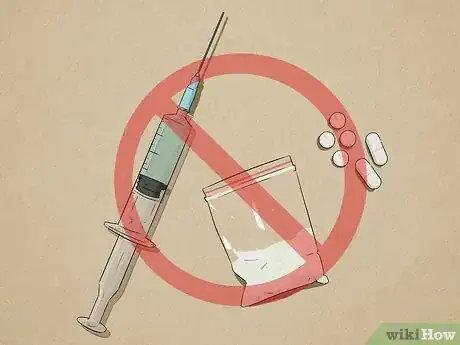

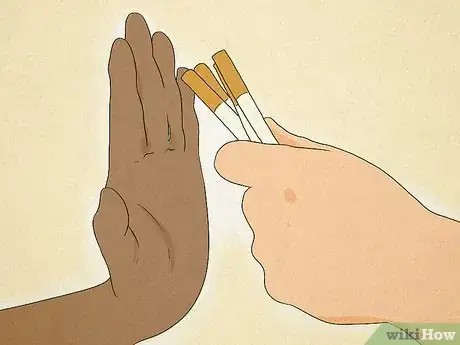
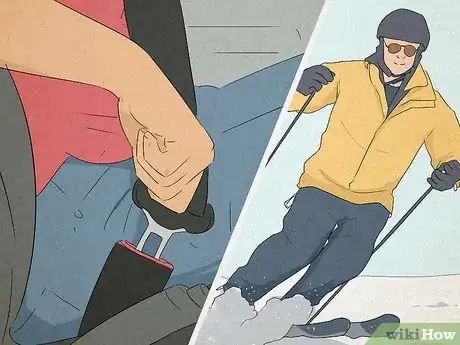


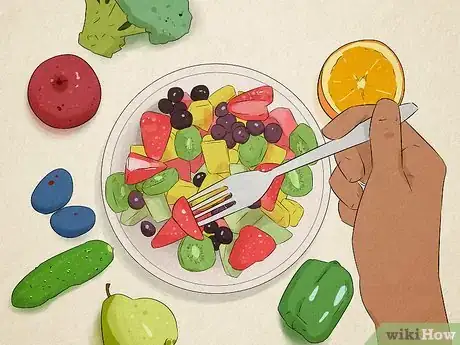
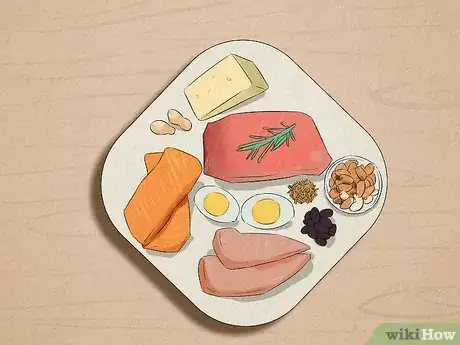
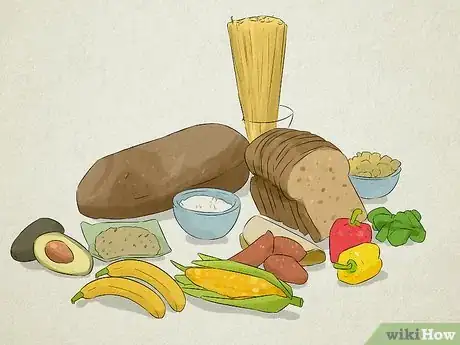

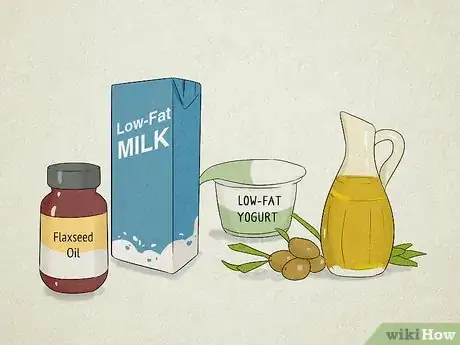
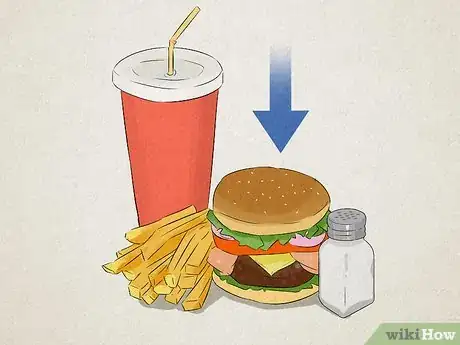


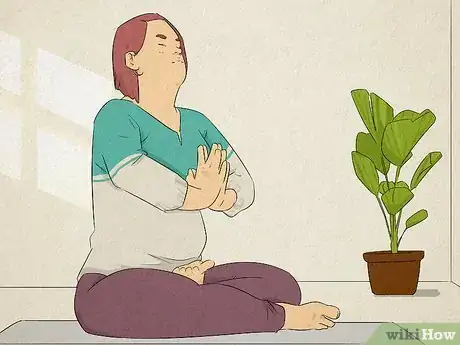









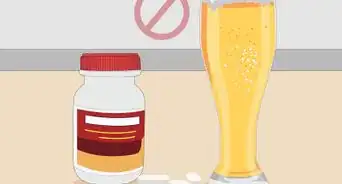





















































Medical Disclaimer
The content of this article is not intended to be a substitute for professional medical advice, examination, diagnosis, or treatment. You should always contact your doctor or other qualified healthcare professional before starting, changing, or stopping any kind of health treatment.
Read More...